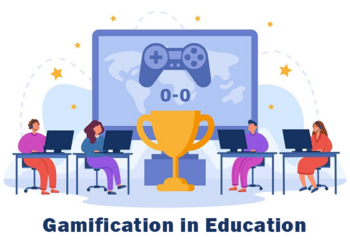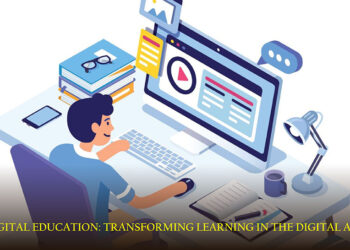Over the past decade, online learning platforms have fundamentally reshaped the educational landscape. From primary schools to universities, and even for professional development, these platforms have made learning more accessible, flexible, and affordable. As technology continues to advance, the scope of online learning is expanding rapidly, offering a diverse range of educational opportunities.
This article delves into some of the leading online learning platforms that are redefining education and how they are shaping the future of learning in a digital age.
A. What Are Online Learning Platforms?
Online learning platforms, often called e-learning platforms or digital education tools, are web-based systems designed to provide educational content, resources, and tools for learners. These platforms enable users to access courses, tutorials, certifications, and degree programs remotely, without the need for traditional classroom-based education.
Some of the key features of these platforms include:
Course Materials: Video lectures, reading materials, quizzes, and assignments.
Interactive Features: Discussion boards, peer interactions, and real-time feedback.
Flexibility: Learn at your own pace, from any location, and at any time.
Certification and Degrees: Many platforms offer certificates or even accredited degrees upon course completion.
The variety and scalability of these platforms make them highly popular among students of all ages and backgrounds. With global access, these platforms have created new opportunities for individuals to pursue lifelong learning and career advancement.
B. Top Online Learning Platforms Leading the Charge
In the competitive world of online education, several platforms stand out for their innovative approaches and user-friendly features. Here are some of the top platforms that are changing the game in education.
1. Coursera
Coursera is one of the largest and most popular online learning platforms, offering a wide variety of courses in partnership with top universities and organizations worldwide. With a strong focus on professional and academic development, Coursera’s offerings range from short courses to fully accredited degrees.
Key Features:
University Partnerships: Courses are offered in collaboration with universities like Stanford, Yale, and the University of London.
Certificates and Degrees: Learners can earn certificates, professional certificates, and even full degrees.
Specializations and Professional Development: Coursera offers specialized courses for career advancement, including certifications in fields like data science, business, and AI.
Popular Courses:
Machine Learning by Stanford University
Data Science Specialization by Johns Hopkins University
Google IT Support Professional Certificate
2. Udemy
Udemy is a globally recognized online learning platform known for its vast library of courses across multiple domains, including business, technology, arts, and personal development. Unlike some platforms, Udemy allows any individual to create and sell courses, which results in a broad diversity of subjects.
Key Features:
Affordable Pricing: Courses are often available for a one-time fee, with frequent discounts.
Instructor Flexibility: Instructors can create and update courses as per their expertise.
Lifetime Access: Once you purchase a course, you have lifetime access to the material.
Popular Courses:
The Complete Web Developer Bootcamp
Excel for Business: Essentials
Photoshop CC 2020 MasterClass
3. edX
Founded by Harvard and MIT, edX is another leading online learning platform that provides high-quality courses, professional certificates, and degrees from some of the world’s most prestigious institutions. Known for its rigorous academic programs, edX offers both free courses and paid options.
Key Features:
Harvard and MIT Collaboration: Offers top-tier university courses.
MicroMasters Programs: Graduate-level courses designed to provide professional expertise.
Free Courses Available: Many courses are free to audit, with fees applied for certificates.
Popular Courses:
CS50’s Introduction to Computer Science by Harvard University
Data Science and Machine Learning by MIT
The Science of Happiness by UC Berkeley
4. LinkedIn Learning (formerly Lynda.com)
LinkedIn Learning offers a range of professional development courses that cater to individuals looking to improve their skills for career advancement. The platform provides courses across various industries, including software development, marketing, business, and creative fields.
Key Features:
Integration with LinkedIn: Courses are integrated with your LinkedIn profile, making it easy to showcase new skills.
Video-Based Learning: Most courses are delivered through video tutorials.
Skill Assessments: LinkedIn Learning offers skills assessments to help learners identify areas for improvement.
Popular Courses:
Project Management Foundations
Adobe Photoshop for Photographers
Digital Marketing Trends
5. Skillshare
Skillshare is a creative-focused online learning platform that emphasizes project-based learning. The platform hosts thousands of classes in subjects like graphic design, writing, photography, and entrepreneurship, making it ideal for those looking to pursue or enhance their creative careers.
Key Features:
Project-Based Learning: Encourages students to complete hands-on projects as part of the course.
Community-Driven: Learners can share projects, get feedback, and interact with instructors.
Subscription Model: A membership grants access to all courses on the platform.
Popular Courses:
Introduction to Graphic Design
Photography Fundamentals
Building a Personal Brand
6. Khan Academy
Khan Academy is a nonprofit educational platform that offers free courses in subjects ranging from math and science to history and economics. Its primary goal is to provide accessible education to students of all ages, and it is especially popular for K-12 education.
Key Features:
Free Education: All courses and resources are completely free of charge.
Personalized Learning: Learners can track their progress and receive tailored recommendations.
Interactive Exercises: Many lessons come with quizzes and practice problems.
Popular Courses:
Algebra I and II
World History
SAT Preparation
C. The Benefits of Online Learning Platforms
Online learning platforms have numerous benefits that make them an attractive alternative to traditional education:
1. Accessibility
One of the greatest advantages of online learning is its accessibility. Learners from around the world can access courses at any time and from any location, as long as they have an internet connection. This accessibility has been especially important during the COVID-19 pandemic, allowing education to continue without disruption.
2. Flexibility
Online courses offer a level of flexibility that traditional classrooms cannot. Learners can choose when to take courses, making it easier for those with busy schedules or full-time jobs to balance learning with other commitments. Self-paced learning allows individuals to progress at their own speed, catering to different learning styles.
3. Cost-Effectiveness
Compared to traditional in-person education, online learning is often more affordable. Many platforms offer free courses or have a lower fee structure for certification, making education more accessible to a wider audience. Additionally, there are no travel or accommodation costs associated with online courses.
4. Diverse Learning Resources
From videos and podcasts to quizzes and peer discussions, online learning platforms offer a variety of resources to cater to different learning preferences. This variety enhances engagement and helps learners retain information more effectively.
D. Challenges Facing Online Learning
While online learning platforms provide numerous benefits, there are also several challenges that both learners and educators face:
1. Lack of Face-to-Face Interaction
Many learners miss the personal connection that comes with in-person classes. The absence of direct interaction with instructors and peers can make it harder for some students to stay motivated or seek immediate help when needed.
2. Technology Barriers
Online learning is dependent on technology, which can be a barrier for students with limited access to computers or reliable internet connections. This digital divide is a significant challenge for equitable education.
3. Distractions and Self-Discipline
Without the structure of a traditional classroom, learners may find it difficult to stay focused. Online learning requires a high degree of self-discipline and time management, which may be challenging for some students.
E. The Future of Online Learning
The future of online learning platforms looks bright. As technology continues to evolve, we can expect even more personalized learning experiences powered by artificial intelligence (AI) and machine learning. These advancements will allow for real-time feedback, adaptive learning paths, and more efficient assessments.
Moreover, with the increasing integration of virtual and augmented reality, immersive learning experiences may soon become commonplace, offering hands-on, interactive education in a virtual setting.
Online learning platforms have undoubtedly revolutionized education by making learning more accessible, flexible, and diverse. As they continue to evolve, they are opening up new possibilities for lifelong learning and career development. With a wide range of platforms available, each catering to different needs and learning preferences, the future of education is now more dynamic and innovative than ever before.















